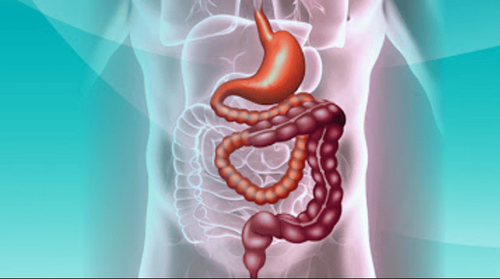This is an automatically translated article.
Burnout is a state of physical and mental exhaustion caused by prolonged stress. Burnout not only has a negative impact on your psychological well-being, but also negatively affects your physical health. So it's important to know how to recognize and prevent burnout as early as possible.
1. What is burnout?
Burnout is a state of emotional, mental and even physical exhaustion caused by excessive and prolonged stress. Burnout occurs when you are overwhelmed, emotionally drained, and unable to keep up with the relentless demands of life. As the stress continues, you begin to lose interest and motivation to work.
Burnout keeps you from being productive. It drains your energy, makes you feel hopeless, self-doubtful, and becomes easily irritated and irritable. The effects of burnout can take a toll on your family life, work, and social relationships. Burnout can also affect physical health, weakening the immune system and increasing the risk of illnesses like flu, heart disease, diabetes, and more. Know how to recognize and prevent burnout before it causes serious health consequences.
2. What is the cause of burnout?
Burnout often stems from work pressure. In addition, there are other factors that contribute to burnout, including your lifestyle and personality traits. The main reasons for burnout can include:
Overworked workload Working in an unfair, democratic environment Lack of communication or support from the manager Imbalance between work Work and life No control over your work situation Boring, repetitive work in the workplace Lack of recognition of achievement Too much pressure at work Perfectionism trends Lack of relationships close, supportive Have a pessimistic attitude about yourself and those around you
3. How to identify yourself as burnout?
Burnout is a gradual process. It doesn't happen overnight, but it can affect you. Signs and symptoms are mild at first, but they will get worse over time. Take the early symptoms as a warning sign that something is wrong with you. If you pay attention and actively deal with stress, you can prevent more serious consequences, but if you ignore them, you will eventually burn out. Signs of burnout can vary widely, including physical, behavioral, and emotional symptoms.
Physical symptoms include:
Feeling exhausted Change in appetite Insomnia or sleeping too much Headaches Muscle aches Decreased immunity, frequent illness Digestive problems Behavioral symptoms include These include:
Isolate yourself Withdraw from responsibility. Skipping work Going to work early or arriving late Procrastinating, taking longer to complete work than usual Abuse of stimulants such as drugs or alcohol Acting more irritable with others Significantly reduced performance , usually at work Emotional symptoms include:
Feeling like a failure, lack of confidence Low self-esteem, low self-esteem Feeling helpless, trapped Low motivation Always feeling cynical Negative thinking Low satisfaction Difficulty feeling more proud of achievement Separation, feeling alone in the world.

Đau đầu mất ngủ thường xuyên là dấu hiệu kiệt sức mà bạn cần quan tâm
4. The difference between burnout and other psychological problems
Burnout has similar symptoms to other psychological problems, such as depression, stress... But actually these are completely different conditions:
Exhaustion versus extreme fatigue: Fatigue is just one symptom of burnout. So even if you're completely exhausted and don't want to do anything anymore, you're probably not burned out unless you have some of the other symptoms listed above. Stress and burnout: Burnout can be the result of constant stress, but it's not the same as being over-stressed. In general, stress involves too much pressure leaving you physically and mentally exhausted. However, people with stress can still feel better if they can keep things under control. On the other hand, being burned out means feeling empty and mentally drained, unmotivated and unable to care anymore. People who experience burnout often don't see any hope of positive change in their circumstances. If excessive stress makes you feel like you're drowning in responsibilities, burnout is a feeling of exhaustion and denial of responsibility. Depression and burnout: Feelings of burnout are often related to a specific situation, usually work. People with burnout just feel hopeless about that particular situation. Depression is often about some or all aspects of life.
5. How to prevent burnout?
Stress at work and in life is inevitable, but burnout is preventable. Following the steps below can help you prevent burnout:
5.1 Get Active Exercising is not only good for our physical health, but it can also boost our mental health. You don't have to spend hours at the gym to reap these benefits. Small exercises and short walks are convenient ways to make exercise a daily habit.
5.2 Eat a balanced diet Eat a healthy diet rich in vitamin C, omega 3 fatty acids, which is considered a natural antidepressant. Adding foods rich in omega-3s like flaxseed oil, walnuts, and fish can help improve your mood.
5.3 Practice good sleep habits Our bodies need time to rest and recharge after long tiring days. So healthy sleep habits are essential for our health. Avoiding caffeine before bed, establishing a relaxing bedtime routine, and staying away from smartphones in the bedroom can help you fall asleep easier.
5.4 Try meditation, yoga or tai chi Yoga or tai chi can be great ways to relieve stress. The symptoms of burnout can be physically present, and you can manage the stress in your body by practicing the above activities on a regular basis. In addition, practicing mindfulness meditation will help you focus on your inner self and know how you are feeling right now. Mindfulness can help you identify when you feel overwhelmed and allow you to take control of your emotional state. It can also help you cope with challenges in life and work.
5.5 Take a break Taking a break for a week or two after an activity that leaves you feeling exhausted can be very refreshing. It may not be a permanent solution, but it can be a temporary relief.
5.6 Reshape the way you look at work Try to find value in your work. Focus on the aspects of your job that you love, even if it's just chatting with a coworker over lunch. Changing your attitude towards work can help you regain purpose and control. Making friends and trying to maintain strong relationships in the workplace can help reduce loneliness and combat the effects of stress. Having friends to chat and joke with during the day can help relieve stress from an unsatisfactory or demanding job, enhance the quality of your work, or simply get you through the day. Hard work.

Để ngăn ngừa kiệt sức, bạn có thể tham gia một số kỳ nghỉ giúp bản thân lấy lại năng lượng
5.7 Change your work environment Talk to your boss, manager, or human resources department about work factors that are causing you to feel burned out. If living at home is exhausting you, talk to your partner and other people living in the household to see if you can improve the condition. If burnout doesn't go away, you might consider making drastic changes to your work or home life.
5.8 Find balance in your life. If you hate your job, look for meaning and satisfaction elsewhere in life: in your family, friends, hobbies, or volunteer work. Focus on the parts of your life that bring you joy.
5.9 Don't hesitate to seek help from others Social contact is a natural antidote to stress, and talking face-to-face with a good listener is one of the fastest ways to calm the nervous system. your scriptures. The person you talk to doesn't have to be able to deal with your stressors, they just need to be a good listener. Also, reach out to the people closest to you, such as your partner, family, and friends. In fact, most friends and loved ones will be happy if you trust them enough to confide in them, and that will only strengthen your friendship.
Besides, you should limit contact with people with negative thoughts. Hanging out with negative people will only drag your mood and outlook down. Finally, try to connect with a goal or community group that is meaningful to you. Joining a religious, social, or support group can give you a place to chat with like-minded people and make new friends.
Prolonged stress can cause us to quickly burn out. However, it is not always possible to detect this condition in time and the result is serious mental and physical problems. Therefore, pay attention to the warning signs of burnout for timely prevention and correction.
Please dial HOTLINE for more information or register for an appointment HERE. Download MyVinmec app to make appointments faster and to manage your bookings easily.
References: healthline.com, helpguide.org, webmd.com












